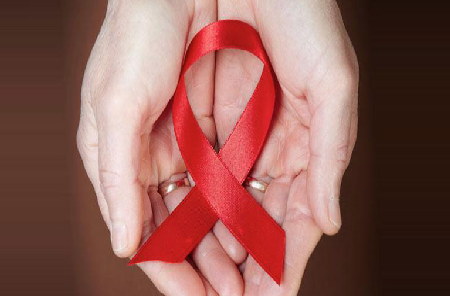It is now possible to use a disposable USB stick to accurately measure and detect the amount of human immunodeficiency virus, commonly abbreviated as HIV, in a patient’s blood. The medical device was designed by researchers at Imperial College London and DNA Electronics and was published in Scientific Reports last week. The USB stick not only makes it easier for patients to monitor their own health, but is also extremely accurate and fast, reducing the need to visit clinics. Indeed, this innovation will undoubtedly aid efforts to diagnose and track HIV infections in resource-poor settings by global health organizations, including Partners-In-Health and Doctors Without Borders, without needing to wait for lab results, saving valuable time.
HIV causes acquired immunodeficiency syndrome (AIDS), which interferes with the body’s ability to fight infections. HIV/AIDS is a global health issue that affects more than 36.7 million people worldwide. Although there is no cure for AIDS, current treatments that are intended to slow the growth of the virus in the human body are quite effective. Great efforts have also been made over the past 40 years to raise HIV/AIDS awareness and prevent the spread of the disease from person to person. Despite these advances, HIV testing remains to be a challenge. Current tests that detect the amount of HIV present in the blood require blood draws and laboratory testing; these procedures not only carry inherent risks, but also require multiple visits to the clinic and long processing times, making HIV testing inaccessible to many.
Graham Cooke, the lead author in the publication, stated, “At the moment, testing often requires costly and complex equipment that can take a couple of days to produce a result. We have taken the job done by this equipment, which is the size of a large photocopier, and shrunk it down to a USB chip.”
The new USB HIV test simply requires a drop of blood to detect the presence and quantity of HIV in the blood. HIV particles react with components on the USB, causing a change in pH. The device then relays this signal to an app on a computer, laptop, or handheld device, and the patient can read his or her results. The researchers who developed the USB stick tested 991 HIV-positive and HIV-negative blood samples and compared their USB stick with traditional testing methods. They found their USB to be over 95 percent accurate, generating life-changing results in 21 minutes, on average, per patient.
The ease of use of this disposable USB also provides HIV patients with a simple method for monitoring their conditions during treatment. One of the most effective HIV treatments is called the antiretroviral treatment, which can significantly lower virus levels to near zero. However, the virus has been shown to develop resistances to some medications. Patients with this form of HIV often do not learn of the drug-resistant nature of their condition until it is too late. The new device, therefore, will allow patients to catch these developments early before viral levels rise.
“The disposable test could be used by HIV patients to monitor their own treatment and help patients in remote regions of the world, where more standard HIV tests are inaccessible,” the researchers of the medical device stated in their publication.
The device could also encourage people who are uncertain if they had contracted HIV to get tested, increasing global HIV vigilance and awareness. These efforts will hopefully eliminate the spread of the virus and improve the lives of those living with HIV.
Currently, the USB HIV test is undergoing further trials in order to perfect the technology before its release to consumers, physicians, and global health organizations. With this USB test, future HIV patients will be able to more effectively monitor their conditions from the comfort of their homes. Physicians will be able to better track the quantity of virus in their patients and prescribe the best course of treatment. Just as how at-home blood sugar testing has helped to transform the lives of diabetics, this USB test will reduce some of the stresses of living with HIV.
This technology is extremely promising and will hopefully be available to the public in the next few years. The research team is now also developing USB devices that test for other viruses, including hepatitis, with their final goal of creating a device that can detect multiple diseases simultaneously. There is still work to be done, but their work represents the first step toward a revolutionizing medical diagnoses for the people who need it most.




